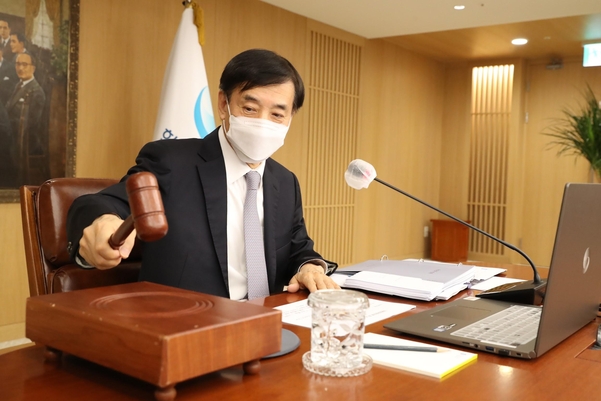Input 2021.01.28 11:57
IMF “An alternative to lowering interest rates”… ‘Let’s raise the interest rate and catch the house price’
In the comments of the Fed Chairman Jerome Powell last night, the mayor’s attention was the pessimistic view of the economy. The US stock market, which was looking for the cause of the correction, has plummeted, and the domestic stock market has also been unable to escape the aftermath. Powell’s remarks seem to have given power to the US stock market, which turned downward to the poor performance of some companies and the’ant rebellion’.
Conversely, monetary policy has gained a margin. Chairman Powell dismissed concerns about’inflation’ and’early taper (reduced asset purchases)’, and draws a line on the link between’asset bubble’ and monetary policy. Finally, the International Monetary Fund (IMF) recommended further rate cuts. In Korea, some arguments about the’early rate hike’ over the soaring real estate and stock prices are likely to lose their strength.

The Federal Reserve froze the policy rate for the Open Market Committee (FOMC) at 0.00~0.25% per year. The Fed lowered its assessment of the economic situation, saying, “The pace of recovery in economic activity and employment has slowed in recent months.” He said he would not change the current easing monetary stance until it achieves full employment and a long-term inflation rate of 2%, and said it would maintain the size and composition of asset purchases worth $120 billion per month.
The US stock market plunged as some hedge funds, which suffered losses due to poor performance of some companies such as Boeing and AMC, and counterattack by individual investors, started selling. In addition, the Fed’s’pessimistic economic evaluation’ was fueled. As it has continued to rise so far, it has focused on remarks that could serve as an opportunity for the mediation. The three major indexes of New York in the United States produced a 2% decline, and the dollar index for the six major currencies rose 0.47% to 90.60.
This aftermath also led to the domestic financial market. In the Seoul foreign exchange market, the won-dollar exchange rate surged over 10 won during the morning, surpassing the 1110 won level, and the KOSPI plunged more than 1%. Seungji Jeon, a researcher at Samsung Futures, said, “As US stock prices plunged the day before, the overall risk aversion sentiment is forming.” “In the domestic stock market, foreigners are continuing to sell.”

Apart from the movement of the market, Chairman Powell’s remarks were quite moderate. Chairman Powell dismissed concerns in the market by saying, “It is unlikely that inflation, which will burden the economy, will occur anytime soon,” and “It is too early to speculate on tapering.”
In particular, it also drew a line on the link between rising asset prices and low interest rates. “The link between low interest rates and asset prices is not as close as people think,” Powell said, “we will prioritize macroprudential policy.” JPMorgan said, “It seems that the Fed is comfortable with maintaining zero interest rates for a long time and continuing to purchase assets at the current level.”
In the market, the Bank of Korea is operating monetary policy, and it is believed that the scope of operation has widened. As Chairman Powell dismissed inflation and early taper, the market’s worries about the change in the Fed’s policy stance were removed. The BOK has frozen its base rate at 0.50% for eight months since May last year.
The direction was the same that the International Monetary Fund (IMF) mentioned the additional measures taken by the BOK on the day. Andreas Bauer, head of the IMF’s Korean mission and deputy director of the Asia-Pacific, advised the BOK, “I think it would be good if there were additional measures. A cut in the benchmark interest rate could be an alternative.”
On the other hand, the claim that interest rates should be raised early to control the surge in real estate prices is likely to lose power. Real estate prices have soared since the end of last year, and recently the stock market has been shaken, and there have been a number of arguments linking this to low interest rates. In the political world, last month, Democratic Party lawmaker Jin Seong-joon suggested that the rise in house prices was due to the increased liquidity released in the market and suggested a review of an interest rate increase to recover liquidity.
Park Sang-hyun, a researcher at Hi Investment & Securities, said, “There is room for further cuts in interest rates, as the IMF said,” he said.
